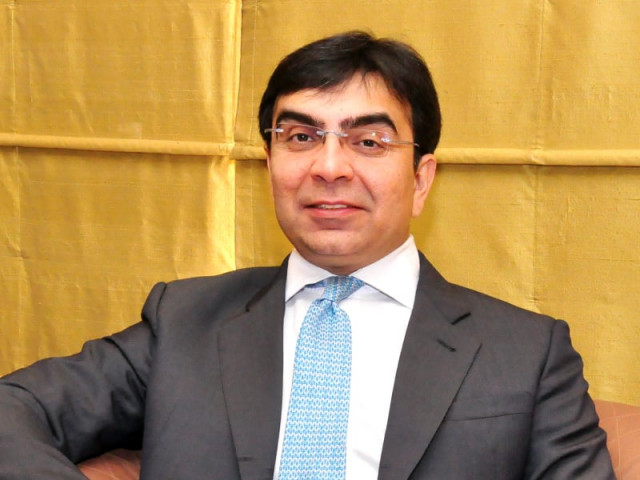Capital markets: SECP rethinks how to regulate the financial sector
Regulator seeks to balance its role as a watchdog and a promoter of the markets.

Regulator seeks to balance its role as a watchdog and a promoter of the markets.
These are exciting times in Pakistan’s capital markets: corporate profitability is skyrocketing, the benchmark KSE-100 index has crossed record highs, and foreign investor interest is increasing at a steady pace. But the institution charged with the stewardship of these markets can only think of what comes next.
The Securities and Exchange Commission of Pakistan (SECP) is a peculiar institution: it is simultaneously the chief regulator and the principal promoter of the development of Pakistani financial markets. In an exclusive, wide-ranging interview with The Express Tribune, SECP Chairman Muhammad Ali laid out the regulator’s vision for the future, as well as its strategy for implementation.
“There are currently only 200,000 retail investors in the Pakistani market, which is a tiny fraction of the total population,” said Ali. “Until we grow that number, we cannot develop the market.”
That focus on the retail investor explains several of the policy initiatives that the SECP announced earlier this past week. For instance, in order to ensure that more retail investors have access to investment options, asset management companies will be required to set up a minimum of 59 offices in at least 21 cities across Pakistan over the next decade. The firms will be allowed to share space with each other.

“Regulatory actions can incentivise behaviour,” said Ali, explaining the rationale behind what appears at first glance to be an onerous requirement on an industry that has been struggling for the past few years.
And there is at least the possibility that new requirements will cause mutual fund companies to increase their management fees, driving down returns that would attract retail investors in the first place. The chairman pointed out that the new rules would not allow current investors to be charged for the fund managers’ expansion expenses. He did not directly address the issue of overall cost, however.
Yet given the 21.9% average annualised rate of return earned by Pakistani equity investors over the past 10 years, perhaps a slight increase in cost is not necessarily such a big factor in motivating retail investors to put their money in the market as trust. And that is an area where the SECP has sought to streamline and effectively utilise its power as a regulator.
Brokerage firms, which have hitherto been largely left alone, will be integrated more closely into the larger regulatory framework of non-banking financial corporations, said the chairman. And the SECP is not afraid to get tough with brokerage houses: it levied a Rs50 million fine – the largest in Pakistani history – on BMA Capital for allegedly front-running its client. (BMA Capital denies wrongdoing and is contesting those charges.)
And the enforcement staff is being ramped up. “By June, we will have the ability to conduct annual inspections of every single brokerage firm in the country,” said the chairman. The goal is to ensure that the SECP is seen as a tough but fair regulator that ensures that the interests of the average investor are protected.
Another technique is to ensure that a better qualified pool of talent serves retail clients. The SECP has begun enforcing certification requirements for sales staff at asset management firms and is seeking to extend that requirement for brokerage firms. Yet in this particular area, the SECP acknowledges that its partner, the Institute for Capital Markets, may have gone too far.

“The ICM [certification exam] is too complex. It needs to be revamped and simplified,” said Ali, in what appears to be a level of candour that permeates the entire organisation.
SECP staff members rarely attempt to sugar-coat anything. It is perhaps this unusual humility that allows the SECP to acknowledge when it does not have the power to regulate some institutions that currently come under its purview, such as leasing and housing finance institutions, which the chairman says are more akin to banking and thus should be regulated by the State Bank of Pakistan.
Indeed, the SBP and the SECP appear to have agreed to transition the regulator regime from one based on institutions to one based on activities: SECP will regulate all activities that come under its purview, regardless of which entity conducts them, and likewise for the SBP.
Published in The Express Tribune, March 10th, 2013.
Like Business on Facebook to stay informed and join in the conversation.


















COMMENTS
Comments are moderated and generally will be posted if they are on-topic and not abusive.
For more information, please see our Comments FAQ